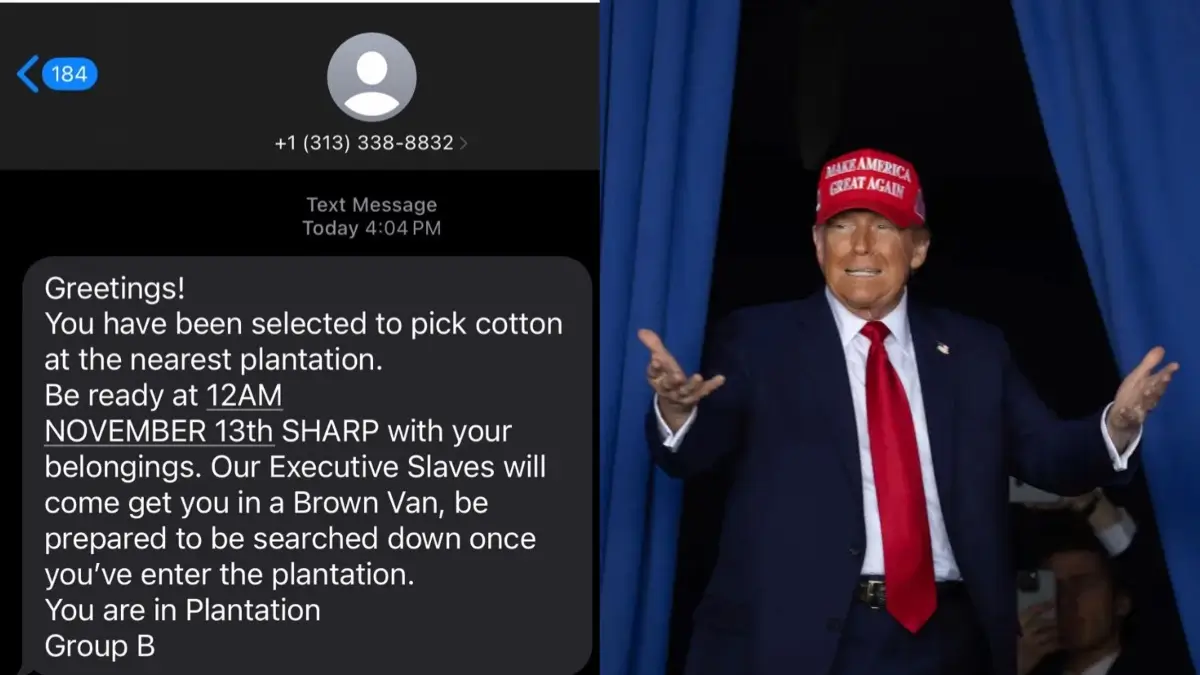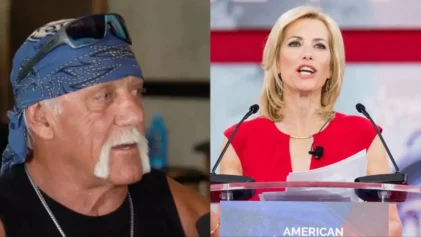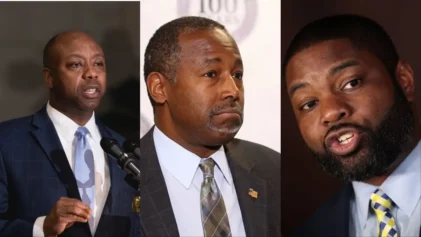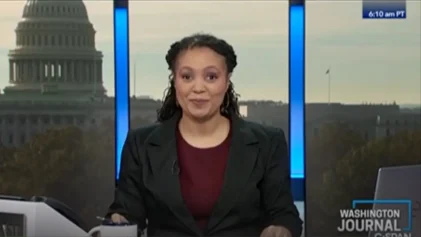The FBI said Wednesday it is “aware” of offensive texts targeting African Americans across the nation.
Black college students nationwide reported receiving racist text messages informing them they had been selected to “pick cotton at the nearest plantation” and to “be ready” after President Donald Trump takes office in January.
Screenshots of the bigoted messages lit up social media on Wednesday, with numerous students asserting they had been instructed to wait for a crew of “Executive Negroes” to pick them up in a brown or white van or a black truck on Jan. 21 — the day after Trump’s inauguration.

“The FBI is aware of the offensive and racist text messages sent to individuals around the country and is in contact with the Justice Department and other federal authorities on the matter,” the FBI stated.
“As always, we encourage members of the public to report threats of physical violence to local law enforcement authorities.”
Speculation was rife about who might be behind the messages, with some blaming hackers who, fresh off Tuesday’s election, might have accessed contact lists from Black conservative groups and used the information to troll individuals whose personal information was exposed.
No suspects have been identified, and no one has claimed responsibility for the racially charged texts, which further underscore the deepening ethnic divisions that continue to grip the nation.
Based on the massive response, the spam-like messages were sent en masse across the U.S. one day after Trump won a second term following what critics described as the most racist and xenophobic presidential campaign in the nation’s history.
Some of the hateful messages were personalized, addressing students by their first names, while each version had subtle variations — with some being told that they were specifically chosen to “be a house slave.”
“Greetings Jacob,” one of the texts stated. “You’ve been selected to be a house slave … after President Trump takes office.”
The texts specified that participants would be divided into three sections, labeled “Plantation Groups A, B, and C.”
The texts also instructed students to “identify and gather items you’d like to bring” to the cotton fields, where enslaved persons toiled for centuries, even after the end of the Civil War, as sharecroppers.
“Be prepared to be strip searched down once you’ve entered the plantation,” the messages declared, peeling the scab off an old wound in the nation’s Black community.
A person on X tried to inject some levity by posting a funny screenshot, showing their direct reply to one of the texts, jokingly asking the sender, “who all in my group?” and following up with, “and are airpods allowed?”—but she did not receive any response.
Not everyone saw the incident as a joke, with many expressing outrage over the disturbing nature of the texts, particularly given Trump’s repeated dog whistles to far-right extremist groups, some of whom remain jailed after the Jan. 6 attack before he left office in 2021.
A day earlier, local election officials across the country expressed fears regarding the potential for extremist groups, such as the Proud Boys, to incite violence at polling places during Tuesday’s vote. Election Day conspiracy theories also suggested that if Trump lost the election to Harris, a race war would erupt, setting the stage for the racist text messages the next day.
A firestorm exploded online as the first report of the messages surfaced on Wednesday morning.
According to reports, a Black student at the University of Alabama was one of the first to come forward, sharing a screenshot with a family friend who then posted it on Facebook while angrily proclaiming, “We not gone Start this Sh—t!!”
Previously, surrogates for Kamala Harris had warned that Trump’s rhetoric was pushing the country back to a Jim Crow-era mentality, as Trump continues to cater to disillusioned white voters who feel left behind by the country’s progress.
The disturbing text messages only seemed to reinforce this concern, further fueling fears of a resurgence of racial division and discriminatory power structures under Trump’s influence.
On Instagram, another person shared a screenshot from the Facebook page of the University of Alabama Black Families, a private group with 520 members.
“My daughter received this message as a text message today,” the post said. “She said numerous Black students are receiving this messge as well … THIS IS NOT OK!!! I called the number but of course there was no answer.”
As the images went viral, an untold number of students reported they had received some form of the same message.
By Wednesday night, a University of Alabama spokesperson confirmed the school was aware of the scandal while noting that it did not appear to be isolated to Tuscaloosa, home of the Crimson Tide.
“It is our understanding that individuals across the country have received these disgusting messages. This has been reported to authorities, and we’re asking anyone who may have information regarding these messages to report it to the appropriate authorities,” the spokesperson said. “UA students who have seen or received such messages are also encouraged to contact the Office of Student Care and Well-Being for any additional support that may be needed.”
Another person on Reddit shared screengrabs from three of his college friends who received the texts in Virginia and North Carolina, which gave the address of the High Point Museum in High Point, North Carolina, as the place to report for duty.
“Anyone else getting this?” the Reddit user asked his followers. “More specifically, how did they pull phone numbers for a specific demographic?”
In the comments section, others said they had seen reports about incidents in Kansas, Texas, Minnesota, Tennessee, Ohio, Florida, Washington, D.C., and Maryland.
One person shared another screenshot of the text that declared, “NO EXCUSES … Failure to show up will result in any form of punishment felt needed by your fellow master.”
It’s unclear whether police will intervene, given the texts have not been officially deemed terroristic threats, and the challenges related to handling cybercrime are due to the general lack of expertise by local law enforcement.


